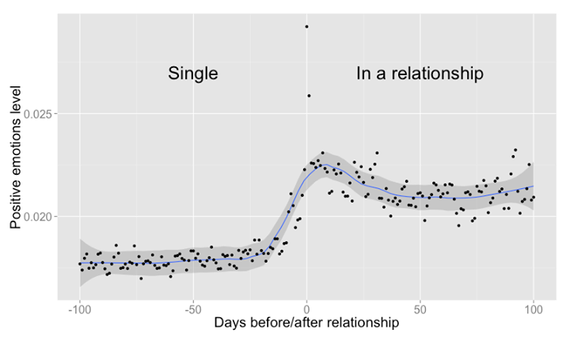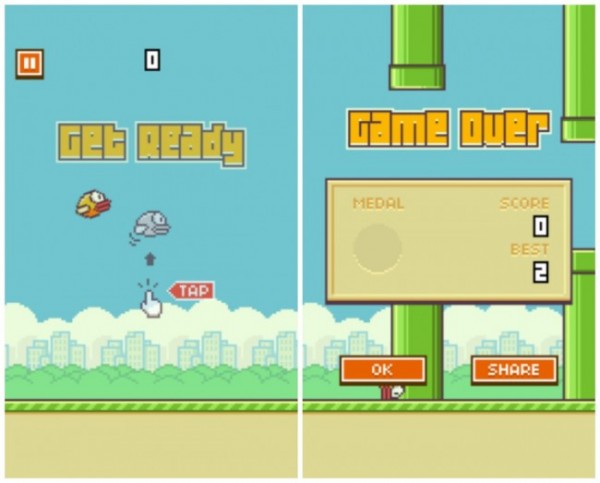Walyou |  |
- People Post Less on Facebook Timelines When They’re In Love
- EmoSPARK Brings Artificial Intelligence Into Your Home
- Serving Pizza At Its Cleanest And Fastest
- Google Buys SlickLogin, Looks Into Sound-Based Passwords
- Maybe a White House Petition Can Resurrect Flappy Bird
- LG G Pad 8.3 Leaks, Sports Verizon Branding
| People Post Less on Facebook Timelines When They’re In Love Posted: 17 Feb 2014 06:00 AM PST  From time to time Facebook show the public some interesting numbers about users tendencies and habits. The latest release shows us how we behave differently as single people compared to when we’re in a relationship. The company’s team of data scientists announced that statistical evidence hints at budding relationships before the relationships start. In his blog post, Carlos Diuk of Facebook data science uses numbers to show how two people, while being still single, will enter a courtship period which shows an increase in posts on each other’s timelines. But once they enter what is officially called a relationship, those posts drop significantly.
Another interesting thing Diuk referenced in his post was that even though the number of posts on timelines decrease, they become significantly happier and more optimistic. Even though measuring love and sentiment isn’t exactly a perfect science, it’s quite interesting to see the raw data and numbers trying to capture what loves looks like on Facebook. To weed out Facebook faux-relationships, it only looked at couples who "declared an anniversary date" between April 2010 and October 2013, not just those who changed their relationship status. The research was focused only on English speaking users. Via Robinson Meyer; Images from Facebook For a bit more on other plans Facebook have, check out their intentions to launch a Mobile ad network. |
| EmoSPARK Brings Artificial Intelligence Into Your Home Posted: 17 Feb 2014 05:30 AM PST  Smart homes are getting one step closer to reality, thanks to this crowdfunded AI home console. The fact that it interacts with humans and intends to change their mood makes EmoSPARK a quite nice virtual companion. Unlike other products that intend to change your mood by tightening the connection between you and your smartphone/tablet/computer, EmoSPARK also adds your friends to the equation. This real-life companion cube does more than just measuring your emotions and making activity suggestions based on the results. It actually promises to radically change the way you use your smartphone, tablet and TV, as well as the way you play games.
EmoSPARK relies on face detection technology to identify you and your emotional state. It then creates an emotional profile graph, and if things don’t look right, the cube breaks the silence, either via your smartphone or via the home console itself. The device makes suggestions when it thinks you are bored, brings you the latest notifications from the social networks you’re connected to, and can even act as a timer when you want to cook and don’t have a watch handy. The best thing of all? It can track multiple people simultaneously, acknowledges when a new person enters its visual field and can even interact with the ones it does now know yet. On one hand, this project is definitely interesting and revolutionary, while on the other hand, it may seem a tad bit creepy. Because of that, it’s probably better to place the cube in a room that’s empty during the night. As I mentioned before, this is a crowdfunded project. EmoSPARK’s Indiegogo campaign still had 6 days to go at press time, but the company had already exceeded its $100,000 goal by 23 percent, so there’s no doubt that the intelligent cube will enter mass production soon. If you still want to get one while it’s hot, you’ll have to contribute $249. The devices are expected to be delivered in April, which means that manufacturing these things really doesn’t take a lot of time. Remember The Sims, the life simulation video game where you tried to help a virtual character evolve, while also changing his or her mood several times a day? Well, I’ve got some bad news for you, sunshine. You’re the Sim now! Watch the following video if you still don’t believe me.
Be social! Follow Walyou on Facebook and Twitter, and read more related stories about the acquisition of artificial intelligence company DeepMind and of home automation company Nest by Google. |
| Serving Pizza At Its Cleanest And Fastest Posted: 17 Feb 2014 05:00 AM PST  You’re doing a lot of things to save the planet, and that’s all good, but how about the way you eat pizza? Here’s a helpful tip that also will keep you from having to clean dishes, too. This idea comes straight from the minds at GreenBox, who came up with a way to serve pizza without having to dirty your dishes, and even make it easier to store once you’ve had a bit of it. If you want to know how does that work, just check the video right below these lines. Source: Unlooker Be social! Follow Walyou on Facebook and Twitter and read more on Walyou, New Google Services Certification to Reduce Fragmentation, Google Now Launcher Rears its Head |
| Google Buys SlickLogin, Looks Into Sound-Based Passwords Posted: 17 Feb 2014 04:30 AM PST 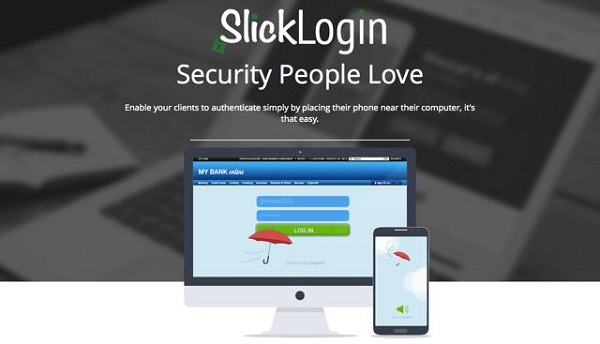 Israel-based security startup SlickLogin is now part of Google’s portfolio. The goal of this acquisition is to make the Internet safer by replacing text passwords with sound-based ones. Let’s face it, text passwords are frustrating. You need to pick a unique, complex password for each account that you open on the Internet. Using the same one for all of them might lead to a nasty chain reaction in case one of the accounts get compromised. And no, “password” is not an option! With this in mind, Google plans to revolutionize Internet security by working closely with the employees of its latest acquisition, SlickLogin.
SlickLogin confirmed the acquisition on the company’s website: “Today we’re announcing that the SlickLogin team is joining Google, a company that shares our core beliefs that logging in should be easy instead of frustrating, and authentication should be effective without getting in the way.” Mind you, the sound-based password technology developed by SlickLogin doesn’t implying playing songs or whistling a tune in order to access your accounts. That wouldn’t be safe at all, now would it? Instead, the computers will play sounds inaudible to the human ear, but which can be analyzed by a smartphone in order to authenticate the user. The position of the smartphone also needs to be confirmed before starting the analysis of the sound. This is done via Wi-Fi, Bluetooth, NFC, or GPS. Since the transmitted sound is unique for each login, it’s rather impossible to hijack the system. Given that users have a single account for all of Google’s services, there are two possible ways the search giant could implement the sound-based passwords. SlickLogin’s solution could either become the second layer of Google’s two-step authentication, thus replacing the code transmitted via phone call/SMS/Authenticator app, or it could replace the username and password combo altogether. Most likely, the activity of SlickLogin will now be correlated with the one of spam-fighting startup Impermium, which Google bought in January. I admit that a sound-based password makes much more sense than the biometric authentication used by Apple’s iPhone 5S, which was hacked in less than 48 hours after the phone’s launch. There is one question that needs to be answered, though: what backup method will be used if the smartphone necessary for the authentication is lost, destroyed or stolen? Anyway, it’ll be interesting to see Google’s new approach for online security. Be social! Follow Walyou on Facebook and Twitter, and read more related stories about the |
| Maybe a White House Petition Can Resurrect Flappy Bird Posted: 17 Feb 2014 04:00 AM PST 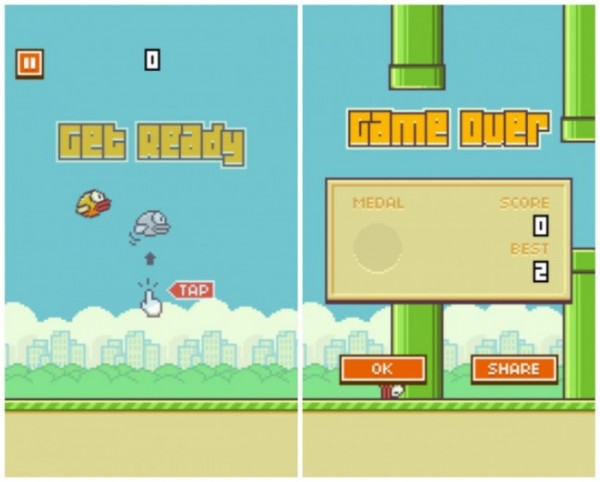 Dong Nguyen took Flappy Bird off the market and left a lot of cellphone and tablet gamers very angry & confused. It turns out that it was enough to get someone very busy, and start a White House petition that didn’t last very long. The Flappy Bird gamer started the White House petition this past Thursday, requesting that President Obama's administration bring the game back. The petition only acquired several signaturse before it was quickly ended for violating participation terms. Nguyen was reportedly making $50,000 a day from ‘Flappy Bird’, a game that requires the user to fly a small bird through the air, avoiding hitting all barriers on the screen in order to keep the game from ending. Nothing new, and quite simple. For whatever reason, it become incredibly addictive, difficult and frustrating, making it an even bigger item. Why did Nguyen pull the plug on the game, which can no longer be downloaded, having people purchase cell phones from those who installed the game in time for incredible prices?
The game was downloaded over 50 million times since January. The Flappy Bird gamer who started the White House petition, known only as D.S. asked the Obama administration to "save the millions who have lost their game or have yet to start playing," by bringing Flappy Bird back. The petition needed to gather 100,000 signatures by March 15, and as of Thursday, it had only 11. On Saturday it was pulled. Via: Laura ClarkFor a bit more on the emerging market around used phones that include Flappy Bird, check this out. |
| LG G Pad 8.3 Leaks, Sports Verizon Branding Posted: 16 Feb 2014 12:00 PM PST 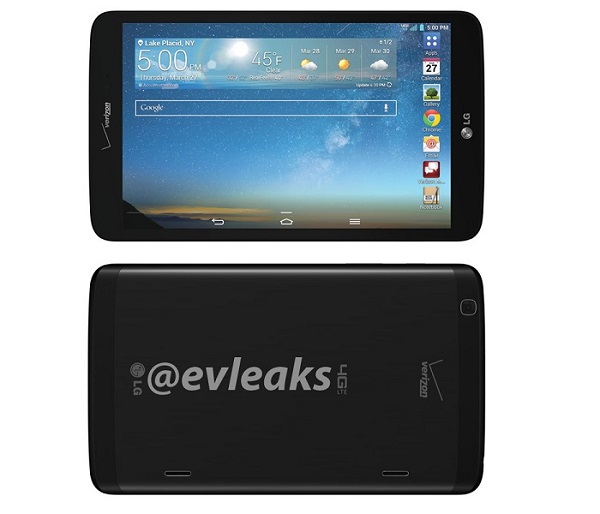 Verizon seems ready to expand its tablet portfolio by adding the yet to be released LG G Pad 8.3, which has already made an appearance on the Internet, thanks to @evleaks. Evan Nelson Blass, better known as phone leaker @evleaks on Twitter, revealed in one of his recent posts how the LG G Pad 8.3 will look like. This year definitely seems to be the year of 8-inch tablets, as Samsung has the Galaxy TabPRO 8.4 in store for us, Asus is reportedly working on an Intel-powered 8-inch Nexus and LG prepares to launch the G Pad 8.3.
Verizon’s history with tablets isn’t that great, however. The red carrier only added the LTE Nexus 7 to its offer this Thursday, as until then it didn’t even allow customers to activate the LTE version of Asus and Google’s tablet on its network. A 37MB update was pushed to the LTE Nexus 7 in order to make it fully compatible with Verizon’s network. It should be noted that The Big Red will also add the Samsung Galaxy Note 10.1 2014 edition and the Samsung Galaxy NotePro to its offer in the upcoming weeks. Back to the LG G Pad 8.3, though, its specs are quite good, but not exactly high-end. This Android tablet is supposed to come with a 8.3-inch display with 1920 x 1200 pixels, a quad-core Snapdragon 600 running at 1.7Ghz paired with an Adreno 320 GPU, 2GB RAM and 16GB of internal storage. There are no details on whether the storage can be furthermore expanded via a microSD card. Its thirst for energy should be easily quenched by the 4,600 mAh battery. The G Pad 8.3 will sport two cameras, a 5 MP one in the back for photos and videos, as well as a 1.3 MP front-facing camera for video calls. The tablet features support for Wi-Fi and Bluetooth 4.0 LE. Android device manufacturers are known to deliver their high-end products with the latest version of Google’s mobile OS, and the G Pad 8.3 makes no exception. LG will offer Android 4.4.2 KitKat out of the box, and future updates should be delivered promptly. Neither Verizon, nor LG commented on when the G Pad 8.3 will be launched, but given that the leaked image and technical specs come from @evleaks, there shouldn’t be any doubts regarding the existence of this tablet. Still, it’s great to see that the market diversifies and the carriers are not reluctant about expanding their offer of tablets. Be social! Follow Walyou on Facebook and Twitter, and read more related stories about Samsung’s TabPRO and NotePRO and the HTC Nexus 10 that is reportedly coming out this year. |
| You are subscribed to email updates from Walyou To stop receiving these emails, you may unsubscribe now. | Email delivery powered by Google |
| Google Inc., 20 West Kinzie, Chicago IL USA 60610 | |
